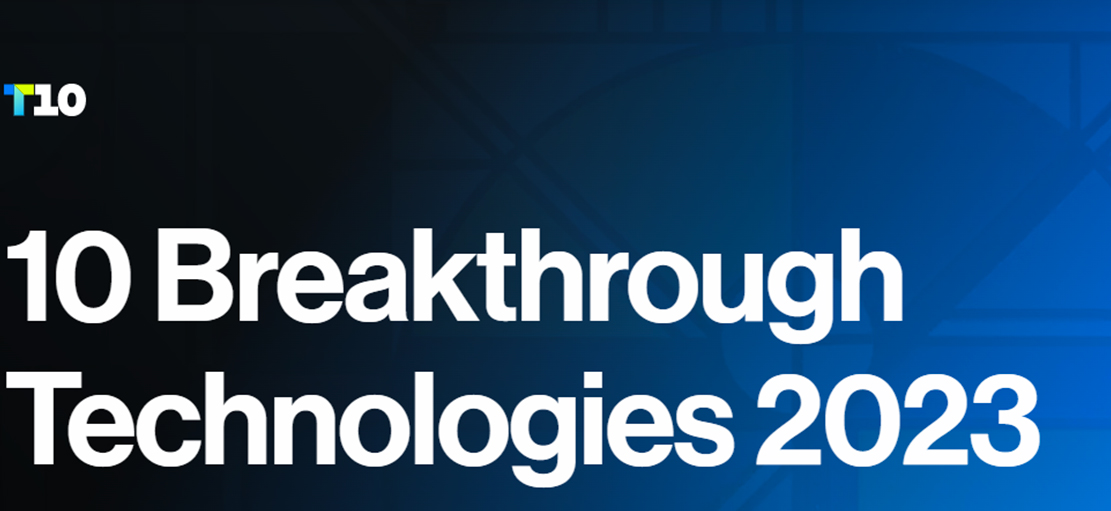La prestigiosa publicación MIT TECHNOLOGY REVIEW presenta anualmente las 10 (diez) Tecnologías que a su criterio, son las más destacadas y resultan las más disruptivas en el periodo mencionado. Algunas son muy conocidas y otras pueden verdaderamente sorprendernos. Pero todas ellas constituyen extraordinarios avances tecnológicos, que tienen gran impacto en nuestras vidas y en el de futuras generaciones. Como aspecto de interés, la página permite que el lector selecciones y vote la “tecnología Nro 11”, entre otras 4 alternativas que MIT presenta.
Every year, we pick the 10 technologies that matter the most right now. You’ll recognize some; others might surprise you.
We look for advances that will have a big impact on our lives and then break down why they matter.
CRISPR for high cholesterol
Over the past decade, the gene-editing tool CRISPR has rapidly evolved from the lab to the clinic. It started with experimental treatments for rare genetic disorders and has recently expanded into clinical trials for common conditions, including high cholesterol. New forms of CRISPR could take things further still.
AI that makes images
This is the year of the AI artists. Software models developed by Google, OpenAI, and others can now generate stunning artworks based on just a few text prompts. Type in a short description of pretty much anything, and you get a picture of what you asked for in seconds. Nothing will be the same again.
A chip design that changes everything
The chip industry is undergoing a profound shift. Manufacturers have long licensed chip designs from a few big firms. Now, a popular open standard called RISC-V is upending those power dynamics by making it easier for anyone to create a chip. Many startups are exploring the possibilities.
Mass-market military drones
Military drones were once out of reach for smaller nations due to their expense and strict export controls. But advances in consumer componentry and communications technology have helped drone manufacturers build complex war machines at much lower prices. The Turkish Bayraktar TB2 and other cheap drones have changed the nature of drone warfare.
Abortion pills via telemedicine
Abortion ceased to be a constitutional right in the US in 2022, and state bans now prevent many people from accessing them. So healthcare providers and startups have turned to telehealth to prescribe and deliver pills that allow people to safely induce abortions at home.
Organs on demand
Every day, an average of 17 people in the US alone die awaiting an organ transplant. These people could be saved—and many others helped—by a potentially limitless supply of healthy organs. Scientists are genetically engineering pigs whose organs could be transplanted into humans and 3D-printing lungs using a patient’s own cells.
The inevitable EV
Electric vehicles are finally becoming a realistic option. Batteries are getting cheaper and governments have passed stricter emissions rules or banned gas-powered vehicles altogether. Major automakers have pledged to go all-electric, and consumers everywhere will soon find there are more good reasons to buy an EV than not.
James Webb Space Telescope
The first breathtaking images of the distant cosmos captured by the world’s most powerful space telescope inspired a collective sense of awe and wonder. And this thing’s just getting started. Discoveries will come almost as rapidly as scientists can analyze the data now flooding in. A new era of astronomy has begun.
Ancient DNA analysis
Genomic sequencing tools now let us read very old strands of human DNA. Studying traces from humans who lived long ago reveals much about who we are and why the modern world looks the way it does. It also helps scientists understand the lives of regular people living back then—not just those who could afford elaborate burials.
Battery recycling
Recycling is vital to prevent today’s growing mountains of discarded batteries from ending up in landfills, and it could also provide a badly needed source of metals for powering tomorrow’s EVs. Companies are building facilities that will reclaim lithium, nickel, and cobalt and feed these metals back to lithium-ion battery manufacturers, helping reduce the cost.
Fuente: https://www.technologyreview.com


